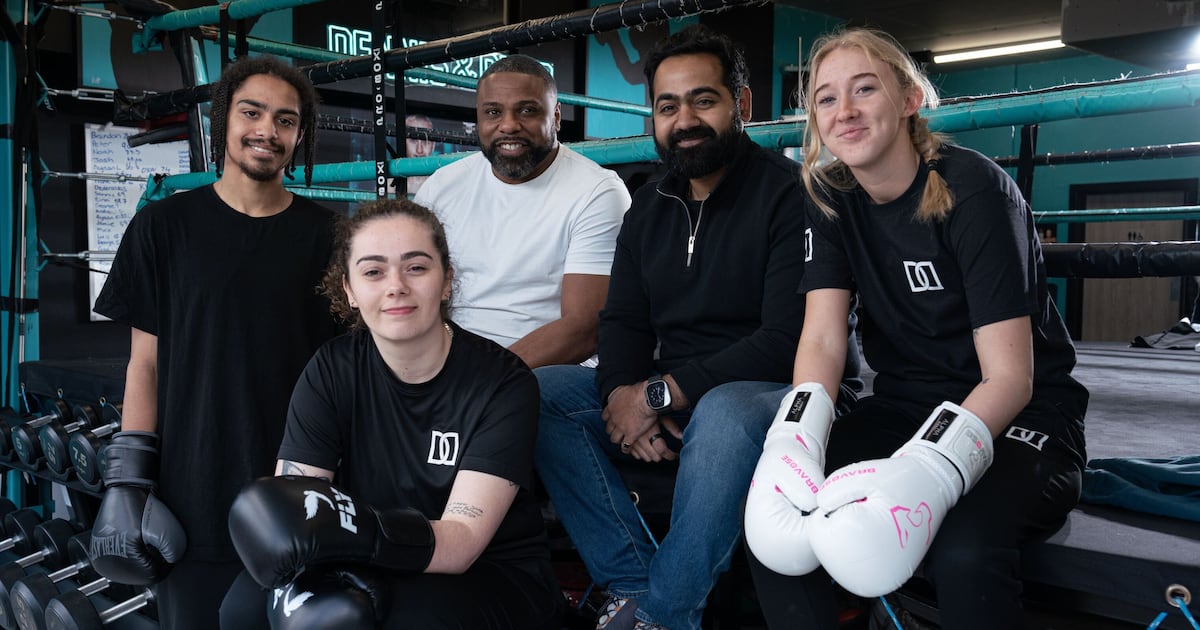Entertainment
Exploring the Rise of ADHD Awareness and Diagnosis in 2023

The incidence of attention-deficit hyperactivity disorder, commonly known as ADHD, has gained significant attention recently, with many attributing this surge to influencers on platforms like TikTok and Instagram. A new documentary, Do You Have ADHD?, hosted by Dr. Karan Rajan, aired on Channel 4 on Tuesday, 8pm, aiming to explore whether the rise in ADHD cases is a reflection of true increases in the condition or a result of heightened awareness.
Dr. Rajan acknowledges that his documentary serves as an introduction rather than a comprehensive analysis of ADHD. He engages with individuals diagnosed with the condition, shedding light on their experiences. One participant, Ellie, describes her feelings by stating, “My brain feels as if there are all these particles firing.” Another, Milly, vividly articulates her experience, saying, “It feels like there is always a swarm of bees in my brain trying to fight each other.”
The documentary also features Dr. Clare Bailey Mosley, who believes both she and her late husband had undiagnosed ADHD. She seeks a professional diagnosis with Dr. Rajan’s guidance. He encourages viewers in similar situations to begin with an ADHD screening questionnaire created by the World Health Organisation. While he emphasizes that this questionnaire is not a diagnostic tool, it may indicate whether a professional assessment would be beneficial.
Bailey Mosley responds affirmatively to a question about difficulty completing projects, noting, “I do kind of fade towards the end.” The question of whether a diagnosis is necessary varies by age group. Val Harpin, an ADHD researcher, asserts that for children, “the answer is always yes: there are no downsides.” She adds that adults often experience mixed feelings upon diagnosis; while it can provide relief and understanding, it can also lead to resentment about missed opportunities in their lives.
Dr. Rajan points out a trend among some social media users diagnosing traits like “T-rex arm,” where individuals hold their arms close to their bodies. He cautions viewers to be wary of such informal online diagnoses. Despite these discussions, research indicates that ADHD is relatively common, affecting approximately 5 percent of the population, according to Prof. Stephen Scott. This is notably higher than conditions like epilepsy or autism, which affect around 1 percent each.
Bailey Mosley’s journey to diagnosis takes an unexpected turn when she learns that her symptoms do not cause any significant impairment in her daily life. Her reaction leans toward relief rather than disappointment. In contrast, some individuals view ADHD as an advantage. A journalist from the Ladbible website notes that his condition allows him to “hyperfocus” at work.
The documentary also features the perspective of George King, a daredevil known for scaling the Shard skyscraper in London. He credits his ADHD for his ability to concentrate intensely when pursuing meaningful goals. “When I have something that means something to me, all those [out of control] thoughts get compressed,” he explains, adding, “The universe gets out of the way.”
This exploration of ADHD in contemporary society reflects a growing conversation about mental health. As awareness increases, so does the need for informed discussions that separate genuine experiences from potentially misleading online narratives. The documentary serves as a valuable starting point for understanding ADHD, its implications, and the ongoing dialogue surrounding mental health in today’s world.
-

 Top Stories3 months ago
Top Stories3 months agoTributes Surge for 9-Year-Old Leon Briody After Cancer Battle
-

 Entertainment4 months ago
Entertainment4 months agoAimee Osbourne Joins Family for Emotional Tribute to Ozzy
-

 Politics4 months ago
Politics4 months agoDanny Healy-Rae Considers Complaint After Altercation with Garda
-

 Top Stories4 months ago
Top Stories4 months agoIreland Enjoys Summer Heat as Hurricane Erin Approaches Atlantic
-

 World5 months ago
World5 months agoHawaii Commemorates 80 Years Since Hiroshima Bombing with Ceremony
-

 Top Stories3 months ago
Top Stories3 months agoNewcastle West Woman Patricia Foley Found Safe After Urgent Search
-

 Top Stories5 months ago
Top Stories5 months agoFianna Fáil TDs Urgently Consider Maire Geoghegan-Quinn for Presidency
-

 World5 months ago
World5 months agoCouple Convicted of Murdering Two-Year-Old Grandson in Wales
-

 World5 months ago
World5 months agoGaza Aid Distribution Tragedy: 20 Killed Amid Ongoing Violence
-

 World5 months ago
World5 months agoAristocrat Constance Marten and Partner Convicted of Infant Murder
-

 Top Stories4 months ago
Top Stories4 months agoClimbing Errigal: A Must-Do Summer Adventure in Donegal
-

 Top Stories4 months ago
Top Stories4 months agoHike Donegal’s Errigal Mountain NOW for Unforgettable Summer Views









